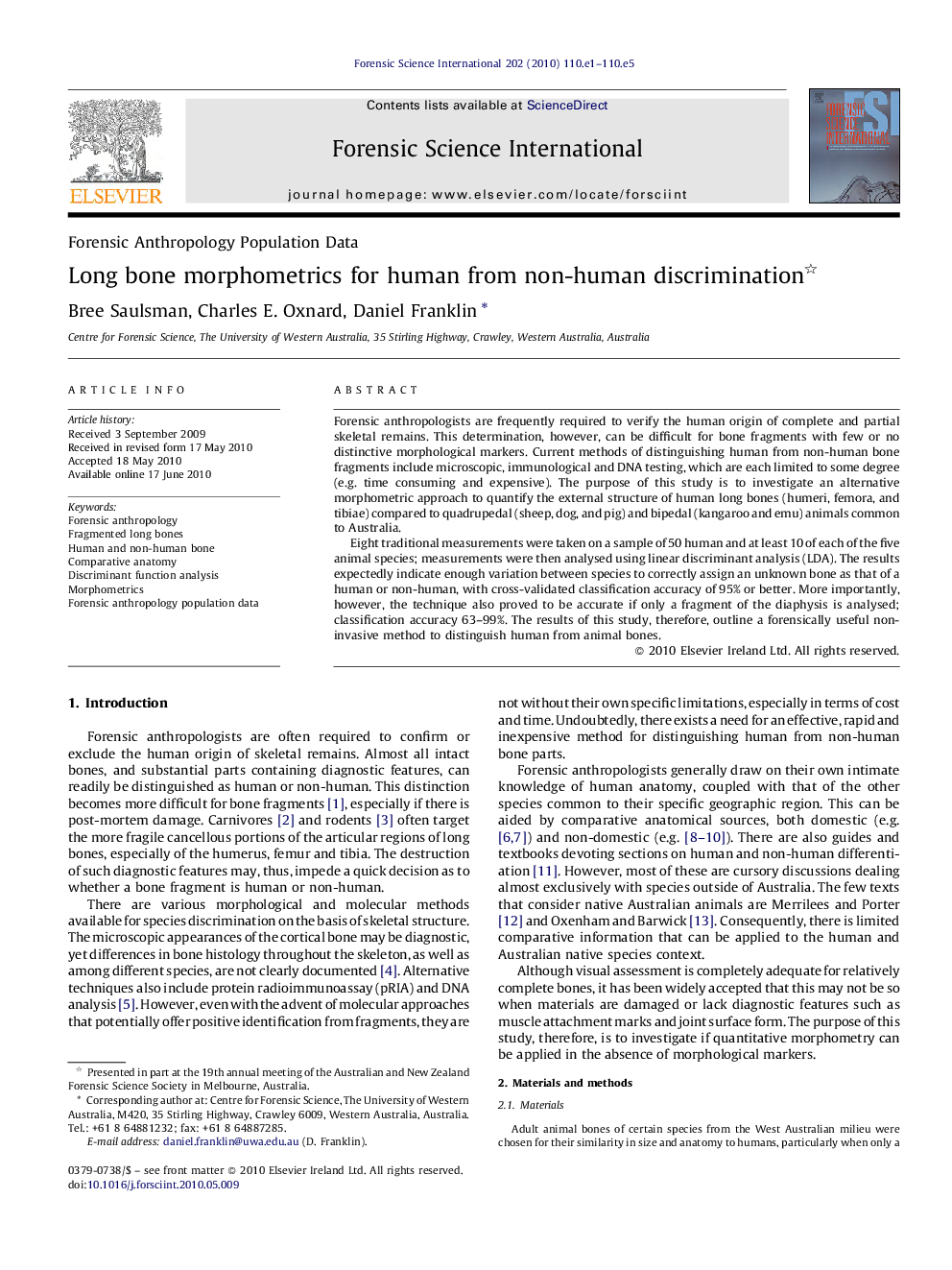| Article ID | Journal | Published Year | Pages | File Type |
|---|---|---|---|---|
| 96829 | Forensic Science International | 2010 | 5 Pages |
Abstract
Eight traditional measurements were taken on a sample of 50 human and at least 10 of each of the five animal species; measurements were then analysed using linear discriminant analysis (LDA). The results expectedly indicate enough variation between species to correctly assign an unknown bone as that of a human or non-human, with cross-validated classification accuracy of 95% or better. More importantly, however, the technique also proved to be accurate if only a fragment of the diaphysis is analysed; classification accuracy 63-99%. The results of this study, therefore, outline a forensically useful non-invasive method to distinguish human from animal bones.
Keywords
Related Topics
Physical Sciences and Engineering
Chemistry
Analytical Chemistry
Authors
Bree Saulsman, Charles E. Oxnard, Daniel Franklin,
